
“So the writer who breeds more words than he needs, is making a chore for the reader who reads.” – Dr. Seuss
“I've found the best way to revise your own work is to pretend that somebody else wrote it and then to rip the living shit out of it.” ? Don Roff
“You write to communicate to the hearts and minds of others what’s burning inside you, and we edit to let the fire show through the smoke.” – Arthur Plotnik
Podcast: Play in new window | Download | Embed
Subscribe: TuneIn | RSS | More
I love editing. It's one of my favorite parts about filmmaking. Steven Spielberg.
When I was in California for a new Media Expo, one my my friends scored ticket to the Tonight Show and my wife and I were able to Go. Jay Leno came out and I'm still not sure what happened (it might've been a cue card issue) but he stopped, and he went back behind the curtain and they did the whole intro again. Obviously, the first intro never made it to air. They do a thing called editing that takes the hard work that you've put into finding a topic, and it makes sure you don't get in your own way. I know improve can be electrifying, but in my travels (see Second City in Chicago and a couple improv groups here in Cleveland) most improv sucks. It could be funny, buy it needs this thing called editing.
There are movies where people are paid lots of money to read words into a camera. We've all been in a movie that would've been better had it moved quicker. It woud've been better if they left a part out. It would've been better if they had done this thing called editing.
The Gold Rules of Content Editing – Listen Through the Ears Of Your Audience
1. When I edit my show, I'm listening through the ears of my target audience. I listen to see if we are on topic. If I'm not on topic I should cut something, I always ask WWMAD (what would my audience do).
2. It should never sound edited. There will be times when Skype burps, and you have almost nothing to piece together – I get that. But if you go to cut out an “Um” and the person said, “UuuuuumI think that..” and it's to hard to get the Um out without it sounding weird then leave it it.
3. If you want someone to promote it, they better sound good.
These are my opinion/rules do with them what you will.
Podcasting Is All About Being Real Right – Why Edit?
When podcasting first came on the scene in 2004 you could use your built in microphone and just talk. Much like Milton Berle was the king of TV in the 50's you could be the king of podcasting. Looking back you had a choice of watching Milton Bele or a test pattern. In 2004 you had about 50 podcasts to compete with.
Guess what? TEN YEARS later podcasters are spending hundreds of dollars on microphones and using dedicated media hosts and interviewing A list celebrities. You can't just wing it. Wait, I take that back. YOU CAN. The question is should you. I'm here to throw my vote as a yes. I edit my podcast. I love this quote: ““You write to communicate to the hearts and minds of others what’s burning inside you, and we edit to let the fire show through the smoke.” – Arthur Plotnik.”
The Real Reason People Don't Edit Their Podcast
It takes time, and from my days of being a public speaker – it's harder to do a 15 minute presentation than a 30 minute presentation as you have to pick out the key points and hit them well.
Editing (and Podcasting) Can Be a Lot of Work – How to Fix That
Be Prepared – One of the reasons we have “ums” is our brain is trying to figure out what to say next. SLOW DOWN, and you will have less ums to worry about. If you're doing an interview, have some questions planned to use as a “game plan” that you can refer to if the conversation needs a poke.
Don't Mess With Your Stuff – If possible set your equipment up and leave it. This eliminates technical issues in the future.
Give Your Guest a Target
Here again, the more you “Wing it” the more you will be editing later. If you are doing interviews, it is your responsibility to give your guest a target. Let them know you might pause between questions, this helps to avoid the “over answer” (more on that later). Let them know what to expect.
Let Your Guest Know Who They are Talking To
I do a number of podcasts. I was asked what my favorite book. I had a very vague idea who the audience was for this audience. I want to deliver great content. I want to provide life changing answers. So I gave a book that I like to read, and hoped his audience might find if useful.
Let Your Guests Know How Long the Interview Should Approximately Be
I was recently interviewed for the Boomer Business Owner podcast. The host of the show sent me to a link that help me understand who I was talking to, and what they were looking for in regards to answer length. If you ask me how I got into podcasting I have a 30 second answer and a 5 minute answer. Which one would you like?
Here is another great site from Jim Collison that helps him prep his guests.
Politely Cutting People Off
My buddy Erik K Johnson of Podcast Talent Coach (and one of the co-hosts of the Podcast Review show) he had mentioned that when someone starts to take a tangent you can politely interrupt them and ask them for more details on whatever they just mentioned (and to get them back on track). It seems rude, but you're guiding them back to the information that you know your audience will enjoy. (see Erik and I talk about this)
What To Listen For When it Comes to Editing Audio
Train Wrecks – These are obvious. You hit the wrong button, your guest starts dropping F bombs, you have 30 seconds of silence in the middle of your show etc. You don't have to look for these they hit you in the face
Low Hanging Fruit – These are the “ums” and “ya knows” that stand alone. If the idea is to make you (or you guest) sound smart you can easily highlight them and press delete.
If Your Guest Answers “No” to a Question – In most cases finding out that someone is NOT doing something is not helpful.
Over Answer – This is where your guest answers your question and then there is a pause (maybe you're looking for the next question) however they think you are wanting more information so they start to answer the question with more unnecessary details.
Listen for the Answer to the question – In many cases the guest may give you details that are not needed (off topic etc). My favorite is when you ask a guest a question and they say, “Well first I want to tell you about…”
TMI – In some cases a guest will give you too much information. You asked them what they had for lunch, and they tell you how they cooked it, what they used to eat it, etc.
Tangents – Look we all love to take a tangent. The problem is in the middle of the tanget you take a tangent. This is followed by another tangent. You get so far off topic that its not longer useful information.
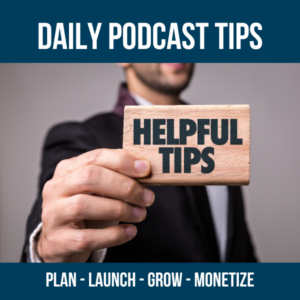
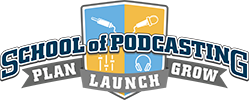
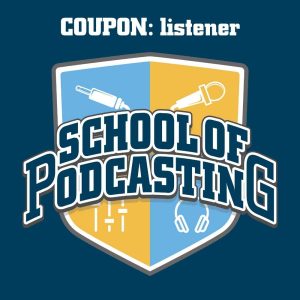
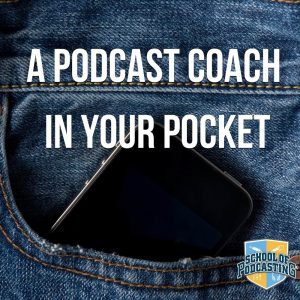
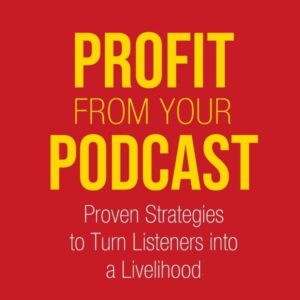
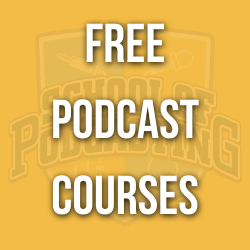
Hi Dave,
Great insight. I think preparation makes a whole lot of difference. It can give the host a whole lot of confidence boost that will really make the flow of the talk/conversation more natural sounding instead of sounding scripted or mechanical.
Not to mention, preparation also takes out a lot of the hassle of equipment, software and other issues that may come up if you just pick up the mic without even testing if your recording software is working.
Florante
Loved this episode. Not editing and just winging it is the reason why podcasting gets the title “amateur hour”, and I think that Jobs was right, because most podcasters avoid what you talk about here.
Its a shame because good content could be WOW content with just a little editing.
Absolutely. One of the reasons we say “um” is we are trying to figure out what to say next. If you know what’s coming next you will be less likely to “um”
Good to hear that you advocate editing your podcasts and to such a degree. I thought I was in the minority of such precision editing in the quest for the best audio quality and comprehension for the listener.
I am moved to say THANK YOU for this episode the School of Podcasting! It was a beautiful day in the great state of Georgia today, and I started out with a full tank of gas, a clean windshield, the open road, and the dulcet voice of Dave Jackson in my ear buds. And as I traveled and listened, I was more and more impressed with the fact that you must have invested a TON of time in preparing this episode! I sure appreciate your work, and I wanted you to know that.
So please tell me, oh wise one, if I switch from Audacity to Adobe Audition, will I be able to edit faster? I do a ton of editing for my podcasts, and it sure sucks up a lot of time. I use Audacity because that’s what I started with, and that’s what I know how to use. But I would be *delighted* to invest in a better tool if it saves me time.
Your thoughts?
Rich
Sadly, I don’t think it will speed things up. I use Sony Sound forge to edit out my ums and ya knows as I can listen at 1.78 speed and still decipher what is going on. It’s $20ish at http://astore.amazon.com/sop2-20/detail/B0051M6J48 (affiliate link). I love audition for the compression and sound enhancements (a bit of high and low end). what kind of editing are you doing?
Thanks, Dave. My editing is cleaning up conversations and interviews: taking out the stutters and pauses, making it flow, and generally making everyone sound good – just as you demonstrated. I always have several different conversations and interviews in each podcast, so I add music during the transitions. I like to add a little compression and roll off some of the low end. Occasionally need to do noise removal.
I like the speed listening feature in Sound Forge. That could save some time. It’s worth $20 to find out. Thanks for the link.
@Rich Grimshaw: You can listen to things at speed in Audacity too, so you don’t need to waste your hard earned pennies on any new software just for this feature.
Great episode ! It made me laugh and I learned something too! It also, made me guilty when I was rush editing a show too this week :=)
Jon,
I just realized I probably owe you an apology. The one edit I had said, “this is edit point one,” and then we had our discussion. This means your story about being nervous was “off the record” and I didn’t ask your permission to play that. I apologize if this frustrated you in any way.